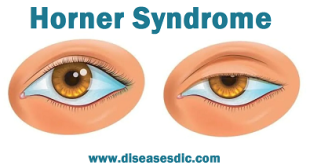Introduction – Hepatitis A
Hepatitis A is a liver disease caused by the hepatitis A virus (HAV). The virus is primarily spread when an uninfected (and unvaccinated) person ingests food or water that is contaminated with the feces of an infected person. The disease is closely associated with unsafe water or food, inadequate sanitation, poor personal hygiene, and oral-anal sex.
Unlike hepatitis B and C, hepatitis A does not cause chronic liver disease and is rarely fatal, but it can cause debilitating symptoms and fulminant hepatitis (acute liver failure), which is often fatal. Overall, WHO estimated that in 2016, 134 persons died worldwide (accounting for 0.5% of the mortality due to viral hepatitis).
It occurs sporadically and in epidemics worldwide, with a tendency for cyclic recurrences. The HAV is one of the most frequent causes of foodborne infection. Epidemics related to contaminated food or water can erupt explosively, such as the epidemic in Shanghai in 1988 that affected about 300 000 people. They can be also prolonged, affecting communities for months through person-to-person transmission. Hepatitis viruses persist in the environment and can withstand food-production processes routinely used to inactivate and/or control bacterial pathogens.
Pathogenesis
The incubation period of hepatitis A virus (HAV) is 15-45 days (average, 4 weeks). The virus is excreted in stool during the first few weeks of infection, before the onset of symptoms. Young children who are infected with HAV usually remain asymptomatic. Acute hepatitis A is more severe and has higher mortality in adults than in children. The explanation for this is unknown.
HAV is not directly cytopathic to the hepatocyte. Injury to the liver is secondary to the host’s immune response. Replication of HAV occurs exclusively within the cytoplasm of the hepatocyte. Human leukocyte antigen (HLA)-restricted, HAV-specific CD8+ T lymphocytes, and natural killer cells mediate hepatocellular damage and destruction of infected hepatocytes. Interferon-gamma appears to have a central role in promoting the clearance of infected hepatocytes.
What causes hepatitis A and how is it contracted?
People develop hepatitis A infection after contracting HAV. This virus is typically transmitted by ingesting food or liquid contaminated with fecal matter that contains the virus. Once transmitted, the virus spreads through the bloodstream to the liver, where it causes inflammation and swelling.
In addition to transmission from eating food or drinking water containing HAV, the virus can also be spread by close personal contact with an infected person. HAV is contagious, and a person who has this can easily pass the disease to others living in the same household.
You can contact by:
- Having food prepared by someone with the HAV
- Consuming food handled by preparers who don’t follow strict hand-washing routines before touching food that you eat
- Eating sewage-contaminated raw shellfish
- Not using condoms when having sex with someone who has the hepatitis A virus
- Drinking polluted water
- Coming in contact with HAV infected fecal matter
If you contract the virus, you will be contagious two weeks before symptoms even appear. The contagious period will end about one week after symptoms appear.
Who is at Risk for Hepatitis A Infection?
Anyone who is not immune can get hepatitis A infection. Food-borne outbreaks occur sporadically throughout the USA. Certain groups of people do have a higher risk of developing HAV infection and should be vaccinated:
- Persons experiencing homelessness
- Persons living in the same household with an infected person
- Sex partner(s) of an infected person
- Persons traveling to countries where hepatitis A is common
- Men who have sex with men
- People who use injection drugs
- Children in daycare
- People who eat raw or under-cooked shellfish
What Are the Symptoms of Hepatitis A?
You can get the first symptoms anytime between 15 and 50 days after you came in contact with the virus. But they usually show up between about 2 and 4 weeks later.
Most people usually have sudden:
- Extreme tiredness
- Loss of appetite
- Muscle aches and pains
- Nausea and vomiting
- Low-grade fever
Several days later, some symptoms of liver problems can show up. You may have:
- Dark urine
- Light-colored bowel movements
- Yellow skin (jaundice). It’s less common in children under age 6.
- Yellowing of the white part of your eyes
- Pain in the upper right part of your belly
- Itchy skin
If your child has hep A, he may also have:
- Cold symptoms
- Cough
- Sore throat
If you’re over age 50 or have long-term liver disease, you may have a more severe case of the disease called fulminant hep A infection. You could have symptoms like:
- Spontaneous bleeding or easy bruising
- Confusion and changes in alertness
- The liver function that gets worse
- Yellowing of the skin and eyes that gets worse
What are the complications of hepatitis A?
People typically recover without complications. In rare cases, it may lead to liver failure. Liver failure due to this infection is more common in adults older than age 50 and in people who have another liver disease.
Older people and people with other medical conditions, such as diabetes, anemia or congestive heart failure, may take longer to recover from the infection.
How Is Hepatitis A Diagnosed?
The health care professional will ask questions about the illness and symptoms, and about any possible exposures to other people diagnosed with hepatitis, especially the type of hepatitis (type A, B, C, or others).
If the health care professional determines that the patient may be at risk for contracting hepatitis, then it is likely the patient will undergo blood tests.
The blood will be tested to determine how well the liver is functioning.
A test will be ordered to detect antibodies to hepatitis A. The results of this test will also determine if the patient has been recently exposed to HAV.
Blood probably will be tested for the hepatitis B and hepatitis C viruses, and others. For example, if a patient has had a large amount of vomiting or has not been able to take in liquids, the blood electrolytes may be out of balance. Blood chemistry may be tested to check electrolytes.
Treatment and Medications
There is no specific treatment, but supportive therapy can improve comfort levels and prevent complications such as dehydration and exhaustion.
This includes:
- Replenishing nutrition and fluids
- Avoiding alcohol
- Rest, with time off work
- Taking over-the-counter (OTC) pain relievers if needed
Patients with significant nausea and vomiting may be admitted to the hospital for intravenous (IV) fluids.
Complications are rare, and most people recover fully. Around 85 percent of people with HAV-infected recover fully within 3 months, and most people have complete recovery by 6 months.
Precautionary treatment after exposure
If a person has not been vaccinated, and they know they have been exposed to HAV, they can still receive either the vaccine or immune globulin within 2 weeks of the exposure.
This may include:
- Colleagues of a food handler who has tested positive for HAV
- Employees and children in a daycare center where someone has received a diagnosis of HAV
- Anyone in close personal contact with a person who has HAV, including nurses or carers
Which treatment they should receive will depend on the age and health status of the person.
Are There Home Remedies for Hepatitis A?
The following measures can help you feel better while you are having symptoms.
- Take it easy; curtail normal activities and spend time resting at home.
- Drink plenty of clear fluids to prevent dehydration.
- Avoid medicines and substances that can cause harm to the liver such as acetaminophen (Tylenol) and preparations that contain acetaminophen.
- Should alcoholic beverages, as these can worsen the effects of HAV on the liver.
- Reduce prolonged, vigorous exercise until symptoms start to improve.
Prevention / Vaccination
Can hepatitis A be prevented?
Yes. The best way to prevent it is through vaccination with the hepatitis A vaccine. To get the full benefit of the hepatitis A vaccine, more than one shot is needed. The number and timing of these shots depend on the type of vaccine you are given. Practicing good hand hygiene – including thoroughly washing hands after using the bathroom, changing diapers, and before preparing or eating food – plays an important role in preventing the spread of hepatitis A.
Who should get vaccinated?
The Advisory Committee on Immunization Practices (ACIP) recommends hepatitis A vaccination for the following people:
- All children at age 1 year
- Travelers to countries where hepatitis A is common
- Family and caregivers of adoptees from countries where hepatitis A is common
- Men who have sexual encounters with other men
- Users of recreational drugs, whether injected or not
- People with unstable housing or experiencing homelessness
- Having chronic or long-term liver disease, including hepatitis B or hepatitis C
- People having clotting factor disorders
- People with direct contact with others who have hepatitis A
- Any person wishing to obtain immunity (protection)
How is the hepatitis A vaccine given?
The hepatitis A vaccine is safe and effective and given as 2 shots, 6 months apart. Both shots are needed for long-term protection. The hepatitis A vaccine also comes in a combination form, containing both hepatitis A and B vaccine, that can be given to anyone 18 years of age and older. This combination vaccine is given as 3 shots, over 6 months. All three shots are needed for long-term protection for both hepatitis A and B.
Is the hepatitis A vaccine effective?
Yes, the hepatitis A vaccine is highly effective in preventing HAV infection. A second hepatitis A shot results in long-term protection.
Is the hepatitis A vaccine safe?
Yes, the hepatitis A vaccine is safe. No serious side effects have been reported. Soreness at the injection site is the most common side effect reported. As with any medicine, there is always a small risk that a serious problem could occur after someone gets the vaccine.
 Diseases Treatments Dictionary This is complete solution to read all diseases treatments Which covers Prevention, Causes, Symptoms, Medical Terms, Drugs, Prescription, Natural Remedies with cures and Treatments. Most of the common diseases were listed in names, split with categories.
Diseases Treatments Dictionary This is complete solution to read all diseases treatments Which covers Prevention, Causes, Symptoms, Medical Terms, Drugs, Prescription, Natural Remedies with cures and Treatments. Most of the common diseases were listed in names, split with categories.








How can I get the vaccine?
Yes vaccines are available for Hep A.
Yes, vaccines are available for Hep A.
can the vaccine protect a person in his entire life without contracting the virus?
If you have been given the vaccine, a positive result means you are immune to HAV and cannot be infected by it. It is presumed that one infection with hepatitis A produces lasting immunity against further infections.
please I’m having yellow eye and also black urine
Yellow eyes and dark urine can be symptoms of various conditions, including hepatitis A, but a conclusive diagnosis requires medical evaluation. Consult a healthcare professional promptly for tests, such as blood tests, to determine the underlying cause and receive appropriate treatment. Self-diagnosis and self-treatment are not recommended; seek qualified medical advice for accurate assessment.
If someone has hepatitis A can he still be vaccinated as part of decreasing the severity of the disease or help the body fight off the infection